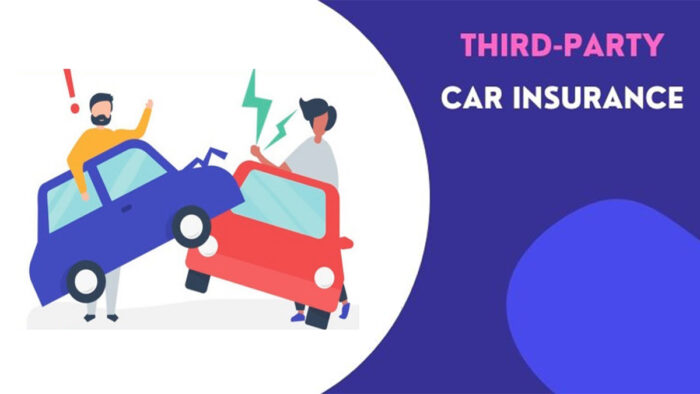In the insurance landscape, third-party insurance is a critical concept that many individuals may not completely comprehend. Unlike first-party insurance, which covers just the property and liability of the policyholder, third-party insurance is intended to defend against claims brought by third parties and covers the policyholder’s property and responsibility.

This type of insurance is crucial for both individuals and companies owing to the fact that it provides financial security in the event that the policyholder’s acts or negligence cause harm to a third party. In this current world and environment, understanding what third-party coverage means is essential to guaranteeing proper coverage and peace of mind.
What Is Third-Party Insurance?
Third-party insurance is specifically designed to cover the legal liability costs a policyholder faces in the event of a third-party loss. For instance, if your vehicle inflicts injury or causes harm to a third party’s property, you will be deemed responsible for the expenses involved.
What third-party coverage does is that it pays for medical expenses and the cost of replacement. It also covers compensation for the affected third party. So, you don’t have to worry about the financial loss involved; third-party coverage already got you covered.
What Does Third-Party Insurance Cover?
A third-party insurance policy generally covers the expenses incurred should, in the event, your car cause damage to another individual or property. This insurance plan will cover financial liabilities that occurred as a result of:
- Third-party property damage.
- Death of a third party.
- Physical injury caused to a third party.
In the event of any of these unfortunate situations, your third-party insurance policy will pay for all the financial liabilities involved, which also includes compensation.
Nevertheless, it is important to point out that, if your vehicle was damaged or suffered a loss, this policy will not cover such financial loss. The coverage applies only to the third party that was affected.
What Does Third-Party Insurance Not Cover?
While third-party insurance is widely known to be an effective strategy for ensuring financial security and peace of mind, the policy also has its limitations. There are certain scenarios that are excluded from third-party coverage, such as:
- Driving under the influence of drugs.
- Driving under the influence of alcohol.
- Driving without a driver’s license.
- Using your vehicle to participate in criminal activities.
- Driving beyond the boundaries of India.
Benefits of Third-Party Insurance
There are several benefits third-party coverage offers to policyholders; they include, but are not limited to:
- Easy and quick process of purchasing the policy.
- The policy is affordable.
- It protects the policyholder from financial burdens that may arise from unforeseen events.
- It provides legal protection in the event of a lawsuit.
- It also enables the policyholder to drive legally on public roads.
Summarily, third-party coverage guarantees financial security and peace of mind, knowing that your policy will cover any third-party claim.
How Are Premiums for Third-Party Coverage Calculated?
The cost of third-party coverage varies. It solely depends on your state and the insurance company you are buying the policy from.
You may get a particular price for this insurance plan from an insurer, but if you check around, the price may be different, and you can even get affordable ones. However, the premiums for third-party coverage depend on the factors highlighted below:
- Available discount that you may qualify for
- The type of car you want to insure
- The capacity of your car
- The variant of your car
- The policy’s term
In the process of applying for third-party insurance, your insurance company will require you to provide certain information that will determine how your premiums will be calculated.
How Do I File a Claim for Third-Party Insurance?
Firstly, review the claim process of your insurance company and what your policy includes. In the event of a third-party loss, the first thing you have to do is to reach out to your insurance company. Provide all relevant information pertaining to the issue and register your claim.
Once you’ve done that, you are required to file a police FIR that contains detailed information about the claim. Afterwards, keep a copy of the FIR, because you will also need it when filing a claim with your insurance provider.
As soon as you are done with the FIR, your claim will be taken to the Motor Accidents Claim Tribunal (MACT), where it will be evaluated. This would determine the amount you have to pay to the third party. Then, your insurance company will compensate the third party for the loss and damage incurred.
What Documents Do I Need to Submit When Filing a Claim?
Outlined below are documents you are to provide when filing a claim under your third-party coverage:
- Claim form (has to be filled out and signed by you)
- A copy of the police FIR.
- Identity proof.
- Copy of driver’s license.
- Copy of your insurance policy.
If you also have any other police reports, you can submit them alongside these documents.
FAQs
Who needs third-party insurance?
Although third-party insurance is not legally mandated in some states, it is one of the types of insurance that any driver should consider buying. If you own an expensive car or run a business with your vehicle, then third-party insurance is for you.
There are certain businesses that may be required to have third-party insurance in place according to the laws that guide insurance where they reside.
What is the difference between first-party and third-party claims?
For a first-party claim, your insurance company will make the payment directly to the policyholder to cover the incident. But on the other hand, the payment for third-party claims is made to the third-party affected, not the owner of the policy.



